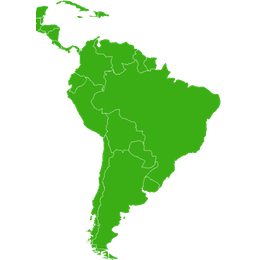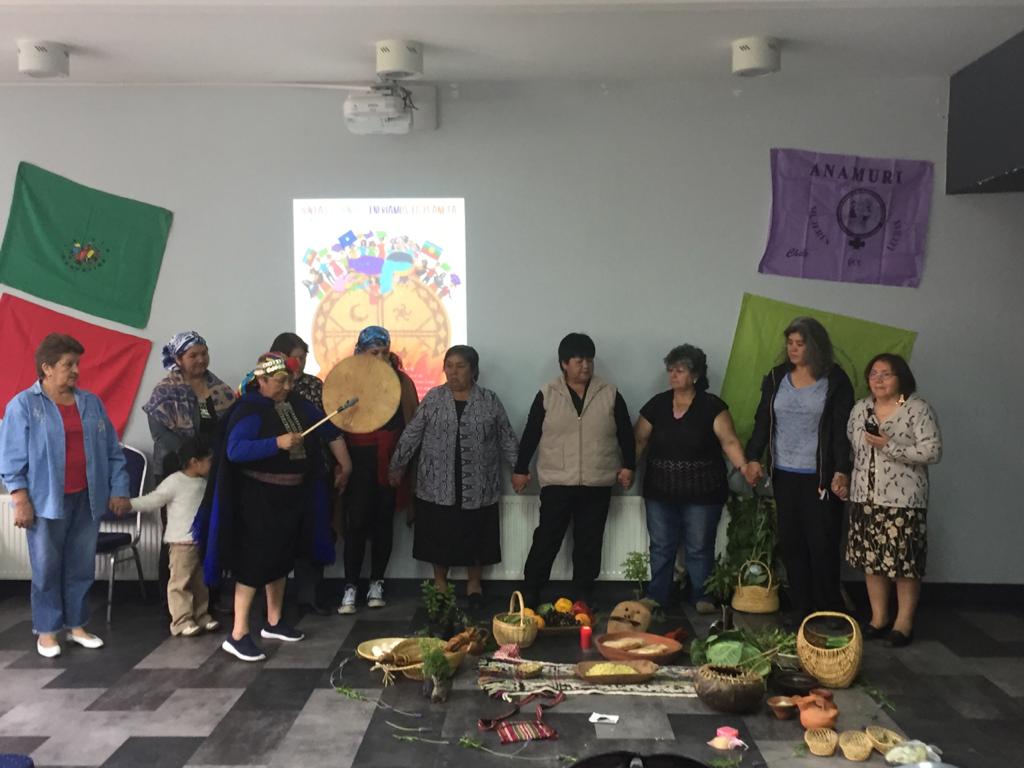Seeds of hope: Traditional and ancestral knowledge applied to revitalize, preserve and multiply more nutritious and climate change-resilient seed varieties in Chile
"The most important thing is that we feel that we are now eating health. We feel that the food is no longer poisoning us."
Francisca “Pancha” Rodriguez, peasant and a leader of National Association of Rural and Indigenous Women from ChileBACKGROUND
Cultural, agricultural and food heritage is being lost with the indiscriminate use of industrial seeds. In Chile, a group of rural and indigenous women has joined efforts to rescue, multiply, preserve and commercialize traditional seeds with more diverse genetic material, better nutritional value and more resilience to climate change.
WHAT’S INVOLVED
Preserving food heritage
Through the exchange of knowledge, rural and indigenous women learn how rescue, multiply, preserve and fairly trade traditional seeds and genetic material.
Health and Sustainable food
Rural and indigenous women are provided with training and seeds to reintroduce healthier and climate change-resilient crops into their gardens and farms.
EXPLORE THIS SOLUTION
Seed of life can offer:
- Knowledge exchange modules to support rural and indigenous women in identifying, preserving and multiplying traditional seeds.
- Healthy food and food heritage as platforms for women’s self-empowerment

Countries involved
Chile
Project partners
La Via Campesina; Coordinacion Latioamericana de Organizaciones Campesinas
Project dates
2016 – 2021
Share this solution
Bookmark this solution
BookmarkShow Full Solution
Summary
Cultural, agricultural and food heritage is being lost because of the indiscriminate use of industrial seeds. In Chile, a group of rural and indigenous women have joined efforts to rescue, multiply, preserve and commercialize via fair trade traditional seeds with more diverse genetic material, more nutritional value and better resilience to climate change. They valorise and disseminate cultural, agricultural and food heritage from peasant seed keepers.
Challenge/Problem
Seeds are of the most basic and important assets in food systems. In general terms, those who control the seeds can control the availability of food throughout the food system value chain. According to local indigenous culture, seeds carry the past, the vision, the knowledge and the accumulated practices of farmer communities around the world. For thousands of years, indigenous people have domesticated, preserved, multiplied, used and exchanged seeds. With the green revolution, seeds were industrially modified to be more homogeneous commodities instead of food, turned into an important pillar of global supply chains. This has meant a great loss of agrobiodiversity, culture and autonomy for indigenous and smallholder farmers in Chile, especially women, who have had their multicultural systems transformed into monoculture and intensive agriculture production, with significant environmental degradation. The loss of traditional varieties and the consequential impoverishment of diets led to malnutrition and other health-related problems.
Solution
A group of rural and indigenous women came together to find a solution to agricultural and food heritage loss caused by the indiscriminate use of industrial seeds. They developed a solution to rescue, multiply, preserve and commercialise traditional seeds and varieties with more diversity, more nutritional value and better resilience to climate change, with institutional and technical support by La Via Campesina and Coordinacion Latioamericana de Organizaciones Campesinas. Among other things, the solution includes a capacity-building process though which indigenous and rural woman from different territories are trained in traditional methods to identify, multiply, preserve and trade seeds in fair trade groups. They also are trained to pass on their knowledge to other woman in their communities. All the seeds identified by the participating women are also preserved in a seed bank named “seed house”, to which they can turn to if they have problems with their own seed stocks. The solution also includes a scaling-up process through which indigenous and rural woman are encouraged to reintroduce traditional crops (especially food and some medicine) into their gardens, their farms and the diets of their families and communities.
Results
As a result of the project:
-More than 10 lost species of high nutrition and climate-resilient crops have been revitalized.
-About 240 species of high nutrition crops have been registered and preserved in the seed bank.
-Traditional seeds have shown greater resilience to climate change than commercial seeds used by participating women.
-Preserving and rescuing traditional practices is growingly seen as the most valuable asset for the future of Chilean agriculture and rural development by rural women, pointed by an average of 28.6% of female producers in the country
-The role of women in rural production and in rural homes is increasingly seen as improving - an average 41% of Chilean rural women have seen a positive change in terms of the female role in agriculture and economic activities
Lessons Learned/Potential for replication
Rural and indigenous women have a lot of knowledge about traditional seeds and crops, but this knowledge is being lost because it is not valued. The massive use of industrial seeds and their technological packages has also devalued these women's knowledge and therefore obscured the central role they have played in the production and reproduction of food security and biodiversity. Valuing the knowledge of these women also means valuing their role in society. The experience of working with these women has also shown that having the chance to collectively restore knowledge about seeds and crops has reinforced their own identity and self-esteem.
Next Steps
The group is planning to stablish new seed houses in other parts of the country as part of an effort to increase the number of participating rural and indigenous women as well as expand the diversity of seeds identified, preserved and multiplied. The group is also working to build a national legal framework that acknowledges seeds and genetic material as public goods that are key to guaranteeing the human right to adequate food for all, thus preventing seeds and genetic material from being privatized and women from being unable to access the seeds they have been working with for centuries.
Last update: 05/01/2023


